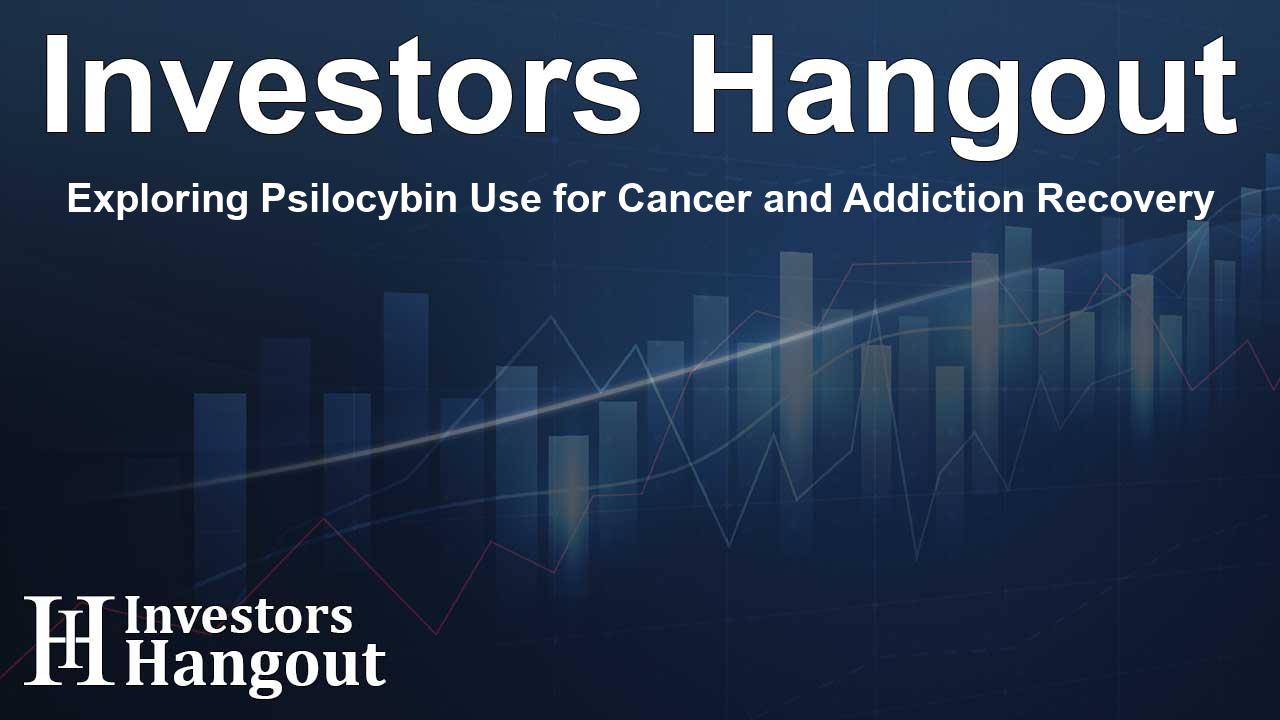Exploring Psilocybin Use for Cancer and Addiction Recovery

Understanding Psilocybin and Its Therapeutic Potential
Recent research has unveiled the promising potential of psilocybin, a naturally occurring compound derived from psychedelic mushrooms, in improving mental health for individuals battling serious illnesses. Studies indicate that just one or two doses of psilocybin, particularly when paired with psychotherapy, may lead to significant improvements in the mental well-being of cancer patients. The therapeutic effects of psilocybin extend beyond temporary relief; they may also facilitate lasting changes in personality for those grappling with addiction, particularly alcohol use disorder.
The Impact of Psilocybin on Cancer Patients
In a groundbreaking study conducted by experts at NYU Langone Health, findings revealed that cancer patients treated with psilocybin along with psychotherapy experienced considerable reductions in symptoms associated with anxiety and depression. The study, published in the journal Nature Mental Health, highlighted that patients reported diminished obsessive thoughts, anger, and even physical symptoms resulting from psychological distress. Astonishingly, these positive effects appeared to persist for up to six months following treatment, indicating that psilocybin therapy can instigate long-term mental health benefits.
Study Insights from NYU Langone Health
According to Dr. Petros Petridis, the lead author of the study, "Our findings suggest that the mental health benefits of psilocybin therapy for cancer patients may reach far beyond what we have previously understood." This groundbreaking statement underscores the need for further investigation into the therapeutic uses of psychedelics in various medical contexts.
Enhancements in Personality for Alcohol Use Disorder
Additionally, a new study from the same team explored the ramifications of psilocybin therapy on patients suffering from alcohol use disorder. The results revealed that participants who received psilocybin therapy showed significant reductions in impulsivity and depression levels, alongside enhanced openness to their thoughts and emotions. Such improvements not only foster resilience against stressors that commonly trigger relapse but also promote a healthier outlook, facilitating an effective recovery process.
Assessing Personality Changes in Therapy
Dr. Broc Pagni, the study's lead author, articulated that these personality changes—especially decreased impulsiveness—are crucial for individuals recovering from alcohol dependence. This finding emphasizes how psilocybin-assisted psychotherapy may offer a robust alternative for maintaining long-term recovery and preventing relapse.
The Importance of Controlled Settings for Psilocybin Usage
As promising as psilocybin therapy seems, researchers emphasize the necessity of conducting these treatments in closely controlled environments. The powerful effects of psilocybin can significantly alter perception, emotions, and self-identity, which necessitates adequate medical supervision to ensure participant safety. Participants in these studies frequently experienced powerful, transformative experiences, often described as personal or spiritual awakenings.
Diving Deeper: Future Research Directions
Moving forward, researchers like Dr. Michael Bogenschutz express interest in further exploration of psilocybin trials aimed at addressing opioid use disorder. Such research endeavours are crucial as they may uncover additional therapeutic benefits of psychedelics beyond current knowledge.
Funding and Support for Ongoing Research
It is essential to acknowledge that numerous organizations and grants have supported the ongoing research into the therapeutic applications of psilocybin. Notable funding sources for these studies include the National Institutes of Health, as well as contributions from various foundations dedicated to psychedelic research. This influx of support showcases a growing recognition of the potential benefits psychedelics may hold for individuals with mental health concerns.
Frequently Asked Questions
What is psilocybin and how does it work?
Psilocybin is a naturally occurring compound found in psychedelic mushrooms that alters perception, mood, and cognition. It functions primarily by interacting with serotonin receptors in the brain.
How does psilocybin therapy aid cancer patients?
Psilocybin therapy, when combined with psychotherapy, has demonstrated the ability to significantly reduce anxiety, depression, and associated psychological distress in cancer patients.
What benefits were observed in patients with alcohol use disorder?
Patients treated with psilocybin therapy showed reductions in impulsivity and depression, along with a notable increase in emotional openness, which aids in their recovery process.
Why is controlled use of psilocybin important?
Psilocybin can lead to profound psychological effects, thus it is crucial to administer it in controlled settings with medical supervision to ensure safety and efficacy.
What future research is being planned regarding psilocybin?
Future investigations may explore the therapeutic benefits of psilocybin in treating opioid use disorder and further examine its long-term effects on personality changes.
About Investors Hangout
Investors Hangout is a leading online stock forum for financial discussion and learning, offering a wide range of free tools and resources. It draws in traders of all levels, who exchange market knowledge, investigate trading tactics, and keep an eye on industry developments in real time. Featuring financial articles, stock message boards, quotes, charts, company profiles, and live news updates. Through cooperative learning and a wealth of informational resources, it helps users from novices creating their first portfolios to experts honing their techniques. Join Investors Hangout today: https://investorshangout.com/
Disclaimer: The content of this article is solely for general informational purposes only; it does not represent legal, financial, or investment advice. Investors Hangout does not offer financial advice; the author is not a licensed financial advisor. Consult a qualified advisor before making any financial or investment decisions based on this article. The author's interpretation of publicly available data shapes the opinions presented here; as a result, they should not be taken as advice to purchase, sell, or hold any securities mentioned or any other investments. The author does not guarantee the accuracy, completeness, or timeliness of any material, providing it "as is." Information and market conditions may change; past performance is not indicative of future outcomes. If any of the material offered here is inaccurate, please contact us for corrections.